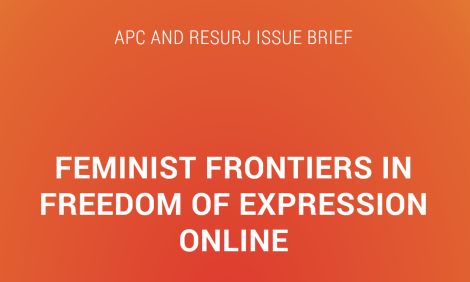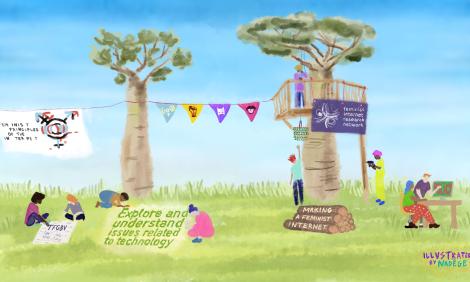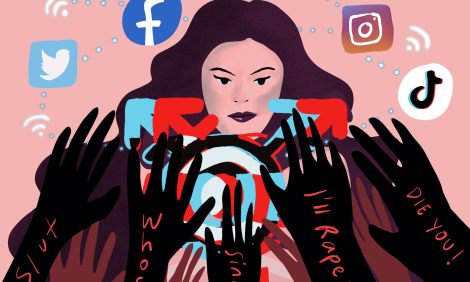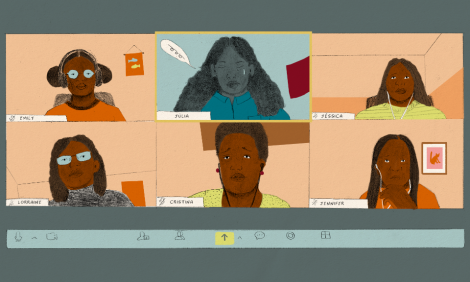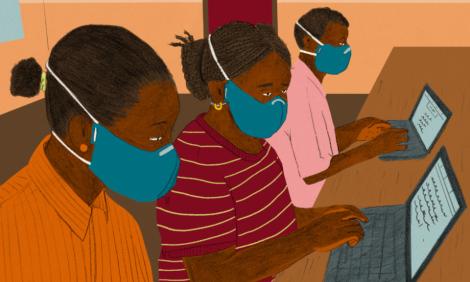In depth
Researching And Reflecting On Experiences Of Digital Privacy in India
By Shruti Arora
Privacy in India has always been regarded as unnecessary for women and young girls - more for those from religious minority groups. But women and gender and sexual minorities have found ways to exercise their right to privacy within and outside their homes. Digital privacy is an extension of them carving their way to demand this constitutionally protected right.
Feminist talk
Protecting Civil Rights Against Corporate Surveillance In South Korea
By Byoung-il Oh
Google has been giving access to users' personal information to the US government under its PRISM program. Six activists in South Korea took the tech giant to court demanding they be given access to the information Google holds on them, and won.
In depth
ISSUE BRIEF: Feminist Frontiers in Freedom of Expression Online
By APC
This policy brief explores questions related to online expression for feminist and women’s rights activists, and draws upon the emerging trends and challenges. Additionally, it provides a preliminary introduction to useful emerging language and advocacy for the CSW and beyond.
In depth
Are we there yet? Online freedom of association and freedom of expression for women in the DRC
By Rebecca Ryakitimbo
The women of Democratic Republic of Congo have been part of shaping the civic spaces for years, leading to the freedom of the country to now highlighting major rights-based issues. But in doing so, their voices have not only been silenced by age old patriarchal systems, but they have also been subjected to online violence that stifles their constitutionally protected right to freedom of…
In depth
Why feminist research is necessary to address technology-facilitated gender-based violence: Recommendations and way forward
By Srinidhi Raghavan
In spite of expanding awareness on online and technology-facilitated gender-based violence, there has only been an increase in the violence online in the last decade. Feminist research on the internet and digital technology show that there is a need for us to push for national and international instruments and transnational commitment to addressing the ongoing experiences of violence while…
In depth
Interrogating Transphobia Within The LGBTQIA+ Community
By Nyx McLean
Where the LGBTQIA+ communities face discrimination across the spectrum, transgender, non-binary and gender diverse folks are discriminated against within the LGBTQIA+ spaces. Researchers Nyx McLean and Thurlo Cicero interrogate how TNBGD people experience this violence in four African countries.
Feminist talk
Snitches, Screenshots, And Pressure To Conform: Finstas Become A Refuge For Pakistani Women And Queer People
By Momina Mindeel
Owing to the constantly increasing threats to their safety, women and LGBT+ folks struggle to have a sense of privacy on the internet in Pakistan. Finstas, or fake Instagram, provides them a safe space for their self-expression. Momina Mindeel explores the serious repercussions of privacy violations, and the 'need' for finstas.
In depth
Misogyny as a commodity in digital spaces
By Serene Lim
Violence has a way of manifesting itself across different platforms – SMS, Zoom, Telegram, Facebook including the newly emerging platforms like Tik Tok and Clubhouse. The problem, therefore, lays not merely in the technology itself, but the underlying logic and profit model that propels the modus operandi of the algorithm, the content moderation policy and all other technologies deployed to…
In depth
Connectivity hacking the pandemic, enabling digital inclusion and unlocking treasure in rural areas
By Miami Chirilele
Miami Chirilele writes about how Murambinda Works, a community network in North Buhera, Zimbabwe, has been able to connect 108,000 people, and is hacking the crisis bottom-up.
In depth
Community networks as infrastructures of resistance: Re-centring the needs of women and communities in technology-making and connectivity
By Sarbani Banerjee Belur
This article situates the role of community networks that strive to deliver on technology’s promise of greater gender equality, making the case for recentring the needs of women and communities in technology-making and connectivity, as infrastructures of resistance in times of crisis.





